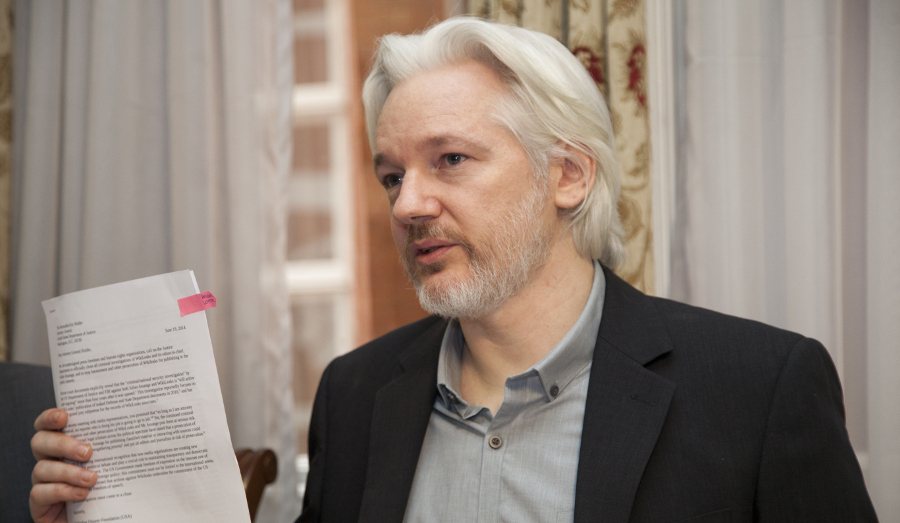After nearly seven years of asylum within the Ecuadorean Embassy in London, journalist and transparency activist Julian Assange was arrested yesterday morning by British police. Ecuadorean President Lenin Moreno terminated Assange’s asylum and invited British police onto the Embassy grounds to arrest Assange. US authorities immediately placed a request for his extradition to face charges of conpsiracy in relation to his role in Wikileaks’ publication of information embarrassing to the US government.
Wikileaks became a household name after its publication of the video Collateral Murder, a video provided to the organization by US soldier Bradley Manning. The video showed the killing of 18 Iraqis by a US military helicopter. Additional material provided by Manning included documents pertaining to the wars in Iraq and Afghanistan and hundreds of thousands of diplomatic cables. Further documents published by Wikileaks in recent years showed that the US government spied on German Chancellor Angela Merkel, and that the National Security Agency had spied on the German Chancellery for decades.
Embarrassing intelligence agencies is one of the worst things you can do to them, and so the establishment started making moves to bring Assange into US custody. It’s unclear what kind of pressure the United States put on President Moreno, but his predecessor Rafael Correa, who had granted Assange asylum in London, denounced Moreno’s actions as traitorous. Don’t be surprised in the coming months, however, to see news of closer cooperation between the US and Ecuador, or hundreds of millions of dollars in foreign aid or military assistance flowing to Quito.
The irony of the situation is that Bradley Manning, who was the source for much of Wikileaks’ publications in 2010 and 2011, had his sentence commuted by President Obama. So why the rush to arrest and prosecute Assange?
Assange had once been the darling of the left, with Wikileaks’ publication of information damning of the campaigns in Iraq and Afghanistan feeding into Democrat’s criticism of the Bush administration’s actions. But with Wikileaks’ publication of Democratic National Committee emails in the summer of 2016, Democrats suddenly accused Wikileaks of working in collusion with the Russian government to undermine Hillary Clinton’s Presidential campaign.
Since then both Republicans and Democrats have accused Wikileaks and Assange of colluding with Russia, with Democrats still smarting from Clinton’s defeat and Republicans only too happy to find a sacrificial lamb to deflect attention of the TDS (Trump Derangement Syndrome) sufferers away from the GOP. Assange will likely be made an example of, although his persecution by US authorities will likely only increase his fame, boost Wikileaks’ reputation, and increase efforts to hold government officials accountable for their actions.
The entire affair has highlighted the extent to which technology firms are in bed with the government and with intelligence agencies and underscores how important it is to continue blowing the whistle about rampant government misdeeds. To those who care about freedom of speech and, indeed, all of the freedoms we enjoy in the United States, the case of Julian Assange will be a bellwether. Is freedom of speech still sacrosanct, even when it results in the publication of information implicating the government in wrongdoing, or is this country continuing to slip into a totalitarianism reminiscent of East Germany and the Soviet Union?
Image: Wikimedia
This article was originally posted on Red Tea News.





